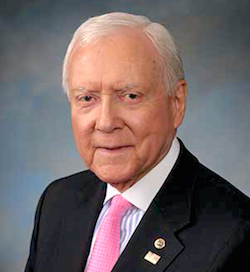
Improving health outcomes and reducing Medicare costs related to beneficiaries with chronic conditions such as Alzheimer’s disease, diabetes and heart disease are the goals of a bipartisan proposal released Thursday by the Senate Finance Committee’s Chronic Care Working Group. The group plans to introduce the legislation in November.
The discussion draft released Thursday represents a year and a half of work and includes input from stakeholders from across the country, according to Senate Finance Committee Chairman Orrin Hatch (R-UT) and Ranking Member Ron Wyden (D-OR), along with Sens. Johnny Isakson (R-GA) and Mark Warner (D-VA), co-chairs of the working group.
Among the ideas in the proposal:
- Unify the Medicare and Medicaid grievance and appeals processes;
- Better integrate behavioral health services for beneficiaries dually eligible for Medicare and Medicaid;
- Expand the Independence at Home demonstration program;
- Increase access to telehealth services under Medicare Advantage and in certain accountable care organizations that bear risk for quality and cost savings, as well as for people undergoing dialysis or who have had a stroke;
- Allow Medicare Advantage greater flexibility in providing health-related services designed to improve or maintain the health or overall function of chronically ill individuals;
- Provide beneficiaries with greater incentives to participate in high-value healthcare while preserving their choices of healthcare providers.
Treatment for people who have chronic illnesses accounts for almost 93% of total Medicare spending, according to the senators, citing data from the Centers for Medicare & Medicaid Services. A study recently published by Psychology, Health & Medicine found that almost 40% of U.S. adults had one or more chronic medical conditions in their lifetimes.
“Left unresolved, chronic care’s impact on beneficiary health outcomes and Medicare program spending could quickly worsen,” Hatch said in a statement. “Developing and implementing policies that improve disease management, streamline care coordination, improve quality and reduce Medicare costs is a challenge, but with strong bipartisan leadership, we can continue to work together to advance innovative policies that improve care transitions, produce stronger patient outcomes and increase efficiency without adding to the deficit.”
A section-by-section breakdown of the discussion draft can be found here.
The working group was announced in May 2015. Since that time, two group providing input have been the nonprofit Bipartisan Policy Center and the American Hospital Association, both of which expressed support for the proposal.



